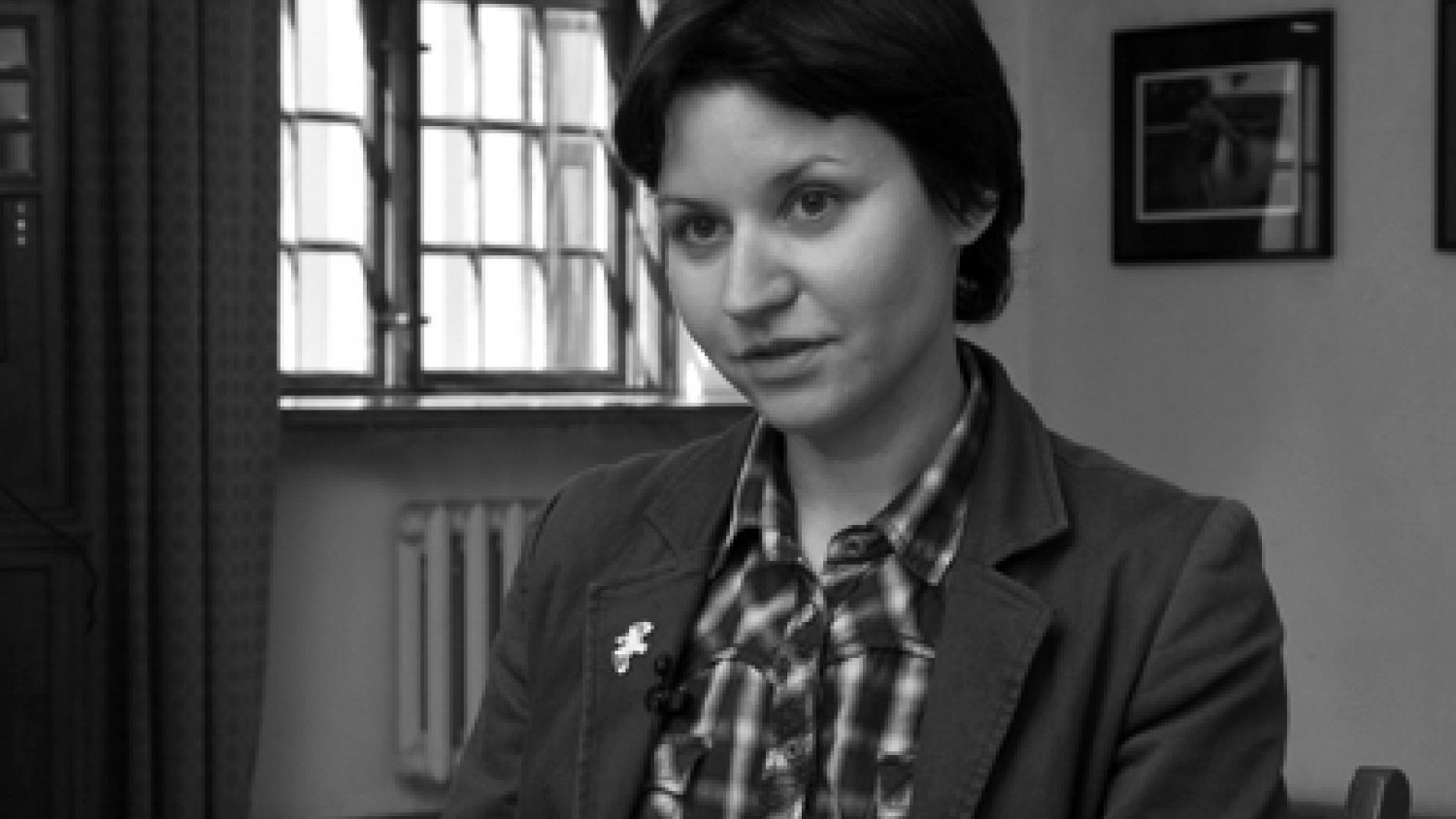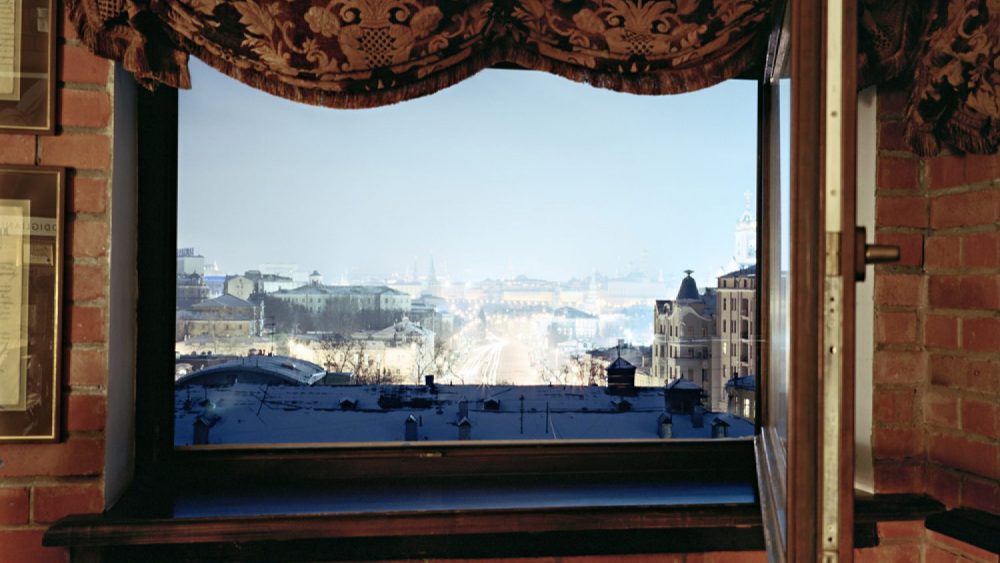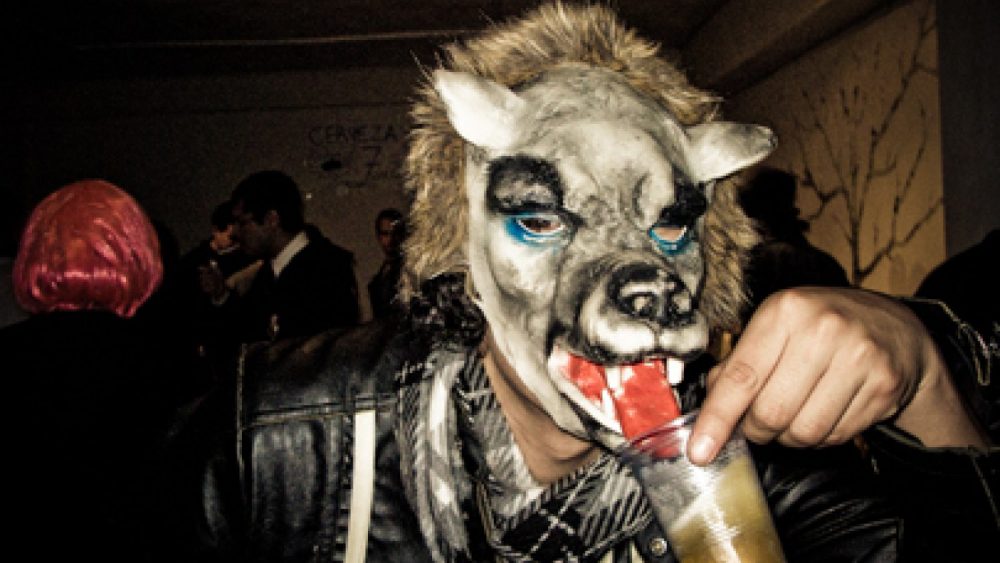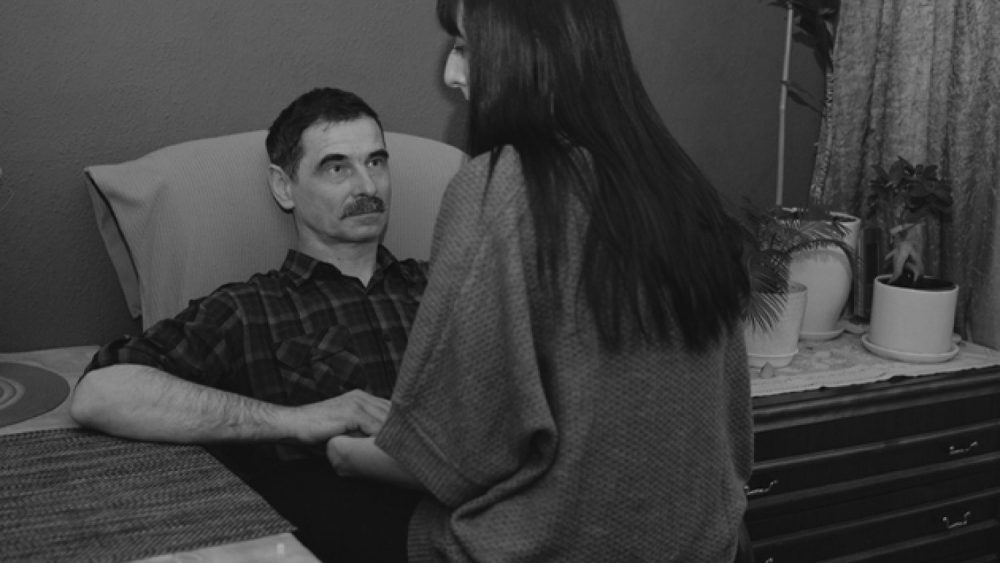Interview with Alexandra Demenkova
Russian photographer Alexandra Demenkova’s (1980) exhibition Territory of Broken Dreams is up at the Latvian Museum of Photography in Riga until 10 June 2012. In this extensive exhibition, the photographer shows her work from the Russian villages where she has gone to look for the real life. She reveals why Russians are unable to fulfil their dreams and tells about the special, unconditional bound she has made whilst living together with the subjects of her photography.
Alexandra Demenkova has a degree from the Photography Faculty in Saint Petersburg. In 2007 she participated in the World Press Photo Joop Swart Masterclass, followed by work at the prestigious residency of the Royal Academy of Fine Arts in Amsterdam in 2008 and 2009.
Could you tell a bit more about the exhibition Territory of Broken Dreams? How was the selection made?
The exhibition is made of several smaller series. All the images are from Russia and the earliest ones are from 2006 when I photographed gypsies. I actually did that by accident – I was in rural areas of Russia working on assignment and met those gypsies for several times. At the same year, I photographed a mental institution in Neppovo. It’s a village in St. Petersburg’s area. I remember, when we were children, we joked that one should go to Neppovo if he or she did something wrong, meaning, that the person was crazy. It was a place everyone had heard of, but I never had thought what it really meant and didn’t know anyone who had visited it. So, at some point I decided to go there. I went back there recently, in 2011. That’s actually what I like doing now – going back to the places and people I’ve visited to photograph them again. There are also images from Pokrovka region in Siberia. I was curious to go there, as a friend in St. Petersburg was native from there and was continuously telling stories about the place. It is remote and the atmosphere seemed hostile at the beginning, but I spent amazing three weeks there. Now I understand that I was actually scared from the open space, the huge territories around with nothing but with the birch trees. I also visited a region where my father was born and my grandmother worked as a Russian language and literature teacher. When people asked who I was, they always remembered my grandmother, and I was immediately accepted. But it’s never easy psychologically. As I spent some time in summer in a place near the water, the group of people whom I knew already, was drinking. One man, not listening to the others, went swimming although he was drunk, and drowned. And then I saw the villages where the schools were shut down because there were no kids. It’s now become a place for refugees, so there are kids from Rwanda, Afghanistan and Belorussia. They have a summer camp – School of Tolerance.
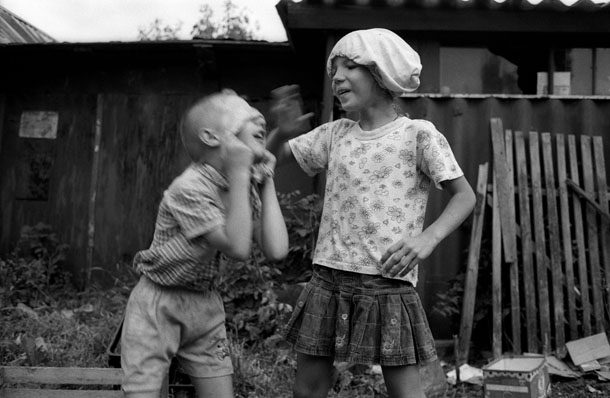
What has influenced you most during these travels and what experience have you obtained?
Every picture tells a story but in general, during my travels, I make friends with people, they are not just subjects of my images. Communication with them is as important as the photographs. Mostly they are women whose life stories have touched me and I have remained friends with. It was a mutual thing and an immediate unconditional connection that you sometimes have with certain people. There is this woman Lena I met in Pokrovka. She is just three years older than me and is married for the second time. I visited her often as her house was just across the street from the place I was staying at. I had heard stories from my friend about her before even coming to the village. She has red hair and is beautiful, even though she is drinking and is a mental wreck. Her first husband battered her when she was pregnant, which led to losing her baby. She is unable to have children ever since. This fact marked her story, I guess. With me, she always wanted to take pictures, she dressed up and put an incredible make-up complaining only about the photographs not being in colour. We had a great time together, she told me her life story. There are always stories I hear once I have left. Another woman was a former classmate of my friend. She used to be a brilliant student, but unfortunately she started to drink, got married and never continued her studies. She has four children and she doesn’t know where her husband is. Her youngest child is just four, but she would disappear for a couple of days, leaving the household in the hands of her twelve years old daughter. While at home, she tries to lead a normal family life, making pancakes. Unfortunately, she can’t control her addiction. So, there are always scandals, too.
How do these people receive you? Have you ever felt that you intrude their lives?
I try not to come as a photographer. At first, I come as a person, as myself to build trust on, so sometimes I just talk and drink tea for days before starting to take pictures. However, it doesn’t mean that I don’t have problems with them. Sometimes they accept me being around and photographing, but the following day they are in a different mood and they can kick me out. The only solution is to be patient and continue working. The fact that they accept me, I think, takes roots in the absence of interest from anyone else. Nobody cares, nor talks to them, but they feel that my interest is sincere. They usually understand what I am doing and when I say that I would exhibit these pictures, they like the idea.
What attracts you to these people?
There is a whole bunch of reasons, but, in the first place, I have always been attracted to the outcast. These people might look like outcast to everyone who looks at the images, but actually they are normal people who live in the villages in Russia. The problem of alcoholism is so massive that one can’t say. I only saw people who were addicts or poor, because most of the people in villages live like that. The last places I’ve been to are empty; there is some land to cultivate but there is nothing left from the collective farming that was in the Soviet Union and there is no work. People have nothing to do and those who want to leave, don’t have the means to do so, unless you have a strong character, and only a few have it. I try to put myself in that situation – being far from everything, living in a village, trying to have some work and producing everything by myself. The situation is devastating. I’m interested in the concept of a real life. The milieu where I’m coming from, I was protected, I didn’t know what it means to be homeless or not getting help when being sick. At the end, I was just facing people, but I wouldn’t be able to do it without my camera. If I wasn’t always interested in arts, I would probably become a social worker.
You became more aware of your interest in photography when you moved to Saint Petersburg. Did you see something or met someone who encouraged your interest?
In the place where I lived before, there was nothing to do, so I was reading a lot and writing poems. Moving to Saint Petersburg was an escape. Besides, as I didn’t like my studies, I went to all the exhibitions. That is how I discovered photography. I tried and I could never stop since. I saw some local photographers as Alexander Kitaev and Evgeny Mokhorev, but it was more the enchantment of photography’s direct connection with life that really triggered my interest. I was very shy at that time, I preferred to observe people and make notes of their conversations, so I was lucky to go to the Photography Faculty and meet my tutor Sergey Maximishin. He inspired me, and I guess, he was the first person who ever praised my pictures. Another turning point for me was around 2004, when I started the kind of photography I’m doing now – when I not only photograph people, but also try to reveal their inner lives.
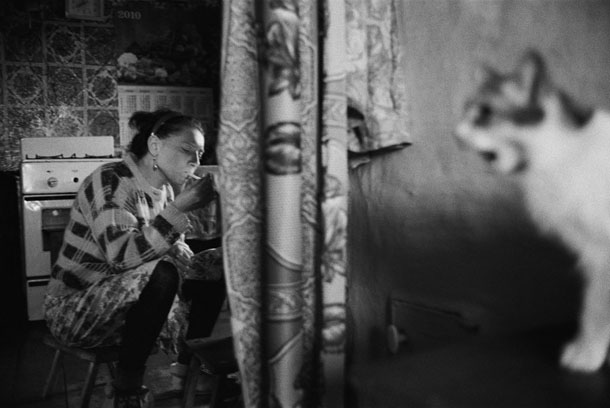
It’s hard to believe when you describe yourself as shy, as it demands a lot of courage and an ability to act on the spot to do what you’re doing.
Once you’ve done it for the first time, you learn. But it does not mean that it’s easier to do it for the second or the third time. When you have worked with a certain group of people, you think you would never be able to repeat it, you even have a certain mental block, no courage to continue, but then you break through again.
How do you deal with the tensions you see around in your photography subject?
Sometimes it’s difficult to go back not because of the harshness of the subject, but because I’m afraid it won’t be the same, I’m afraid to meet someone who’s been very close after a certain period of time. People tend to forget once you leave, people change. However, as I know what level of intimacy I can achieve with these people, I keep returning and working.
What are you working on now?
I keep working on this project, which is most developed at this point, but I keep shooting a smaller series within it that I can exhibit separately or that could fit in a bigger project. As such, I’d like to make this project into a book now.
What is the most rewarding thing for you as a photographer in the process?
There are external things, such as an exhibition or a book, which gives your projects a structure, a final shape; a publication liberates your mind and gives a possibility to start something new. Nevertheless, the most important thing for me are the reactions – one person is shocked to see how people live in our country, another feels sick, but they show an emotional response. I want people to see human characters, real people and not the generalization. I’m showing human, part of emotions, thus it shouldn’t look pessimistic.
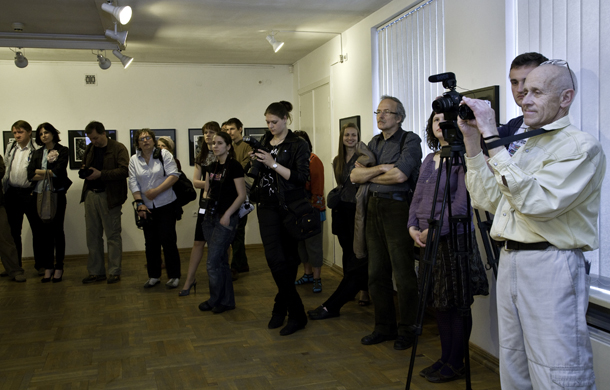
The title of your exhibition is Territory of Broken Dreams. Why people can’t fulfil their dreams?
The initial title of the project was Territory of Dream, which I saw on a sign in one village. But the editor of the World Press Photo Joop Swart Masterclass, where I participated in 2007, asked if I wouldn’t mind to change it. I did, but honestly, I find it too romantic. The title should be a key and give different ways of reading and understanding and at the same time it shouldn’t be restrictive. As for the real fulfilment of dreams there are historical, social and political conditions but, in Russia, also such a thing as the national character must be taken into account – people are depressed and there is no room to make their dreams come true. It concerns all the people, not only those in the villages. There are a few people that take an active position. It is important to determine what you want and many people cannot even do that! And then it is important to go for it no matter what, if you lose, you lose but at least you have tried.
Tell about the Joop Swart Masterclass you participated in!
It was a really good and interesting experience. At that time, I didn’t have a lot of contacts with foreign photographers and photography professionals and it was one of the first times I went to Europe at all. It was a great honour, of course, to have been nominated at the first place and then to have been chosen for the Masterclass. The most amazing thing, however, was meeting all those great photographers, it’s all about communication for me.
What does your day as a photographer look like?
My life is not so well structured, I have been splitting my life between Russia and the Netherlands since 2008 – 2009, when I worked at a residency of the Royal Academy of Fine Arts in Amsterdam. I feel the best in the field, I’m happy when I’m working on a project. Sometimes I have an assignment, but in my spare time I still love going to the exhibitions and festivals.
Do you follow photography’s movements in Russia? How would you describe the importance of documentary photography?
Sure. There are many photographers and the situation globally is different from the times when I was studying. At my time, we were more naïve, but also photographing more, as there was no internet yet. We were working, but weren’t aware of the situation of photography in Europe. We were more documentary orientated, now the young photographers tend to go more in art photography direction. Generally speaking, people don’t appreciate documentary photography so much, there are less chances to publish. I feel that documentary photography is more for the pleasure of the photographer as opposed to the public. Nevertheless, there is a great Russian magazine and also war photographers. Everyone has his own path to make and I have chosen to do what I love.
